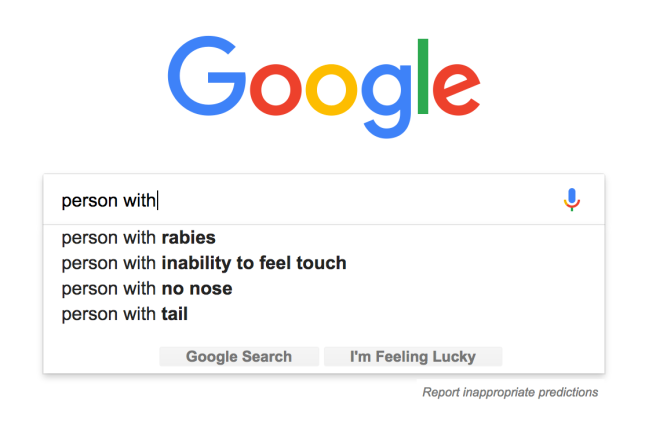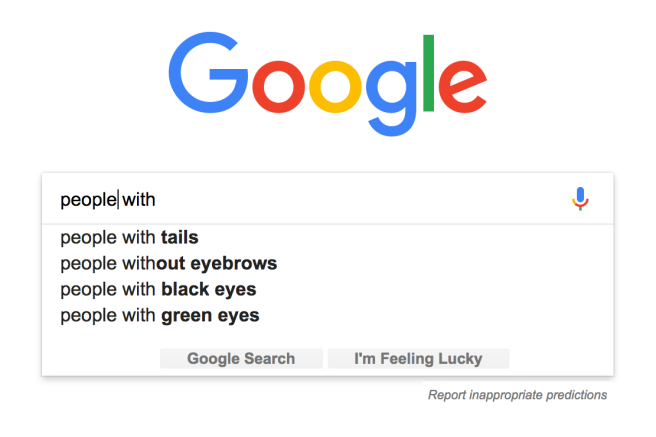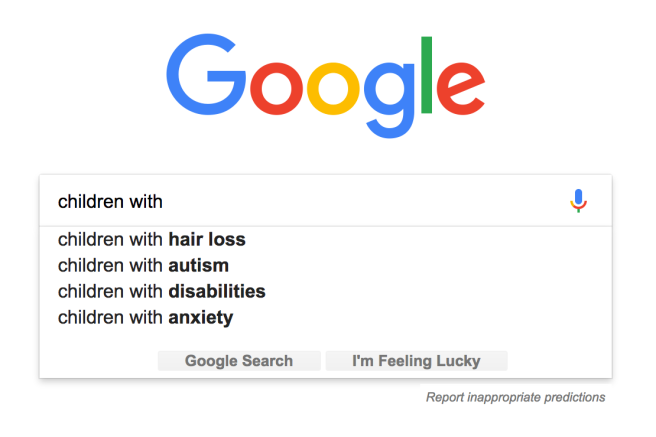As I mentioned in my last post, I have had a post about so-called “person-first” language percolating. This will likely not be my only post on the subject, but I at least want to begin formulating my thoughts on the matter — partly because I expect that this will come up as I begin my studies in human services, and I want to have at least some thoughts lined up.
Let’s start with some definitions. “Person-first” (or “people-first”) language is a formulation used in many branches of human services, education, etc., wherein the individual’s disability or condition is expressed second, after some noun describing the individual: person with autism, for example. A common alternative is called “identity-first” language, which uses an adjectival form of the disability/condition before the noun: autistic person, to continue the example.
The way it is usually presented, the argument for “person-first” language is that it emphasizes that the individual is, well, a person first, and then their condition or disability. It puts forth the notion that a particular attribute is not the person’s identity, but more of a secondary trait. People who insist on this formulation often say we should not let our disability/condition/etc “define us.”
But here’s the trouble: it’s not up to others to decide what defines us. Many of us do consider autism part of our identity, and not as something separate (or separable) from who we are. It pervades our entire way of thinking, communicating, and viewing the world. “Autistic” describes the type of person I am; autism is not some incidental trait I happen to have.
Let me expand on that a moment. My last post consisted of screen shots I took of Google auto-complete search suggestions for various examples of “person-first” language. I found similar suggestions offered by Yahoo’s search engine, as well. Essentially, I wanted to convey a sense of the sorts of things people use this type of phrasing for — in other words, what sorts of things are seen as something one “has” rather than something one “is.”
Looking at those examples, I generally do not consider autism to be in the same category as other things people “have.” Many of these things are temporary conditions: having a fever, for example, or having braces. Autism is not temporary; it is lifelong. Others are things that do not have easily-created adjectives: “children with hair loss” cannot easily be changed to “hair-loss-experiencing children,” or some such. Autism has a ready adjective: autistic. Still other examples are physical traits that could often go either way in terms of language: “people with green eyes” vs “green-eyed people.”
That last one I could make a case for; mixing up the language between “autistic people” and “people with autism” isn’t intrinsically negative in my mind. After all, some people on the spectrum do not consider autism a part of their identity, and prefer person-first language — that’s fine, too. I am entirely in favor of people using whatever language they prefer about themselves. What I do not appreciate is the insistence that only certain language be used about a group of people — and especially not by people who are not in that group themselves.
(I am also in favor of varying one’s language in the interest of euphony, which frankly is another peeve I have when it comes to insisting on person-first language all the time. It’s clunky.)
But here’s the thing: when it comes to eye color, most people don’t, ahem, bat an eye over one’s choice of phrasing. You could say “blue-eyed” or “with blue eyes” and frankly I don’t think most people would notice. People only insist on “person-first” language when the characteristic in question is something stigmatized, something that they think we should distance ourselves from. They say this phrasing helps remind others that we’re people first, because people will otherwise not think so.
A recent article in the Journal of Child Psychology and Psychiatry highlighted this fact, and suggested that the insistence on “person-first” language may serve to accentuate stigma. Where the prescription for person-first language was intended to apply to everyone, it is used more frequently for people with disabilities, and “…is most frequently used to refer to children with the most stigmatized disabilities.” Because of this, it actually highlights the stigma attached to certain conditions, and helps to perpetuate it.
I found this paragraph particularly telling:
“Furthermore, children with more stigmatized disabilities are more likely to be referred to with gifted person-first terms (e.g. gifted children with autism), whereas children with less stigmatized disabilities are more likely to be referred to with gifted identity-first terms (e.g. gifted blind children). For children with two disabilities, the more stigmatized disability is more likely to be referenced with person-first language (e.g. blind children with autism, 94%), whereas the less stigmatized disability is less likely to be referenced with person-first language (e.g. autistic children with blindness, 6%).”
As I said before, I have no quarrel with people who choose person-first language for themselves. I also have no problem with using a mix of language for the sake of variety (though I prefer “on the autism spectrum” as an occasional alternative to “autistic”). But I think the institutional insistence on using only “person-first” language with regard to autism is marginalizing — especially considering that it has been repeatedly demonstrated that there is a widespread preference for “identity-first” language among autistic people ourselves




